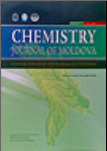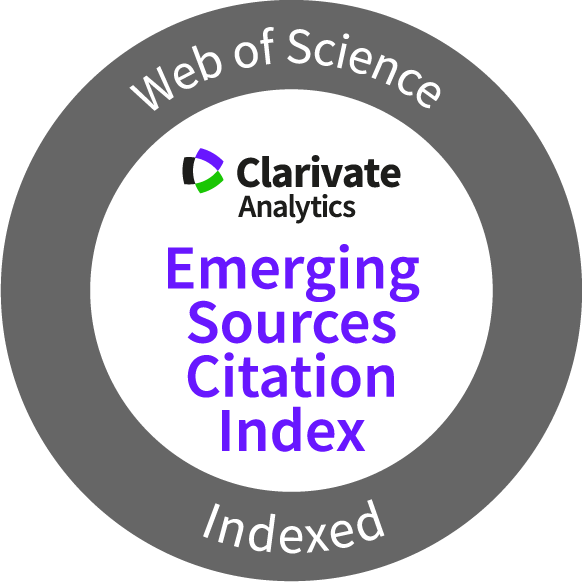Chemistry Journal of Moldova
2023 Volume 18, no.2
Author(s):
Field: Physical chemistry and chemical physics
Type: Research paper
Issue: 2023 Volume 18, no.2
Pages: 78-86
Ana Maria Toader, Maria Cristina Buta, Fanica Cimpoesu
Field: Physical chemistry and chemical physics
Type: Research paper
Issue: 2023 Volume 18, no.2
Pages: 78-86
Full Text (PDF): Download
https://doi.org/10.19261/cjm.2023.1146
Abstract (PDF)
Supplementary Material (PDF)
Graphical Abstract: The ab initio account of f and d electrons in lanthanide ions is assessed taking the Pr(III) ion. This shows rich experimental data and analytical tractability of spectral terms. The calculations are reaching a moderate match to experiment, the analysis identifying the actual impediments and suggesting ways of possible improvement.

Downloads: 119
Author(s):
Field: Inorganic and coordination chemistry
Type: Research paper
Issue: 2023 Volume 18, no.2
Pages: 61-68
Eleonora Afanasenko, Inna Seifullina, Elena Martsinko, Viktoriya Dyakonenko, Svitlana Shishkina
Field: Inorganic and coordination chemistry
Type: Research paper
Issue: 2023 Volume 18, no.2
Pages: 61-68
Full Text (PDF): Download
https://doi.org/10.19261/cjm.2023.1121
Abstract (PDF)
Supplementary Material (PDF)
Graphical Abstract: The present study extends the research and describes synthesis strategy, structural properties and biological activity of complex compound (HPhen)4[(µ-O){Ge2(OH)(µ-Tart)2}2]·9H2O, which comprises a tartratogermanate anion and the protonated form of 1,10-phenanthroline as the cationic component.
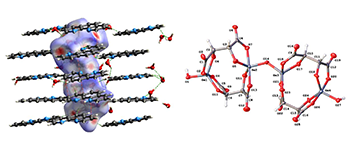
Downloads: 119
Author(s):
Field: Ecological chemistry
Type: Research paper
Issue: 2023 Volume 18, no.2
Pages: 15-27
Vladyslav Zhezherya, Petro Linnik, Rostyslav Linnik
Field: Ecological chemistry
Type: Research paper
Issue: 2023 Volume 18, no.2
Pages: 15-27
Full Text (PDF): Download
https://doi.org/10.19261/cjm.2023.1091
Abstract (PDF)
Supplementary Material (PDF)
Graphical Abstract: The aim of this research work was to evaluate the role of different fractions of humic substances in the binding of Al(III), Fe(III) and Cu(II) ions into complexes. The share of humic substances with a molecular weight of 20–5 kDa increases from 37% to 59%, when the total concentration of humic substances also increases. It was established that humic substances with molecular weight 20–5 kDa bounded the smallest amount of Al(III), Fe(III) and Cu(II) into complexes.

Downloads: 100
Author(s):
Field: Physical chemistry and chemical physics
Type: Research paper
Issue: 2023 Volume 18, no.2
Pages: 96-104
Tudor Spataru
Field: Physical chemistry and chemical physics
Type: Research paper
Issue: 2023 Volume 18, no.2
Pages: 96-104
Full Text (PDF): Download
https://doi.org/10.19261/cjm.2023.1087
Abstract (PDF)
Graphical Abstract: The Pseudo-Jahn-Teller-Effect governs the glutamate mutase and methylmalonate-CoA mutase preliminary step and provides insight into particular details of in vivo C-N bond cleavage reactions of the adenosylcobalamin cofactor. Multi-configurational self-consistent field (MCSCF) calculations show that the preliminary step reaction glutamate mutase and methylmalonate-CoA mutase processes occur in the absence of total energy barriers.

Downloads: 67
Author(s):
Field: Ecological chemistry
Type: Research paper
Issue: 2023 Volume 18, no.2
Pages: 28-34
Muslim Hasan Allawi, Riyadh Sadeq ALMukhtar, Shurooq Talib Al-Humairi, Ali Dawood Salman, Tatjána Juzsakova, Viktor Sebestyén, Igor Cretescu
Field: Ecological chemistry
Type: Research paper
Issue: 2023 Volume 18, no.2
Pages: 28-34
Full Text (PDF): Download
https://doi.org/10.19261/cjm.2023.1019
Abstract (PDF)
Graphical Abstract: The degradation of diisopropyl methylphosphonate (DIMP) in aqueous solutions was studied using ultrasound irradiation with a fixed frequency of 26.6 kHz, following the first-order kinetic model. The experimental parameters, including the pH, the initial concentration of DIMP, the processing time, and the concentration of the additive CCl4 were investigated. The best degradation efficiency of 98% was observed at pH of 10, adding 0.8 g/L CCl4 for a processing time of 45 min.
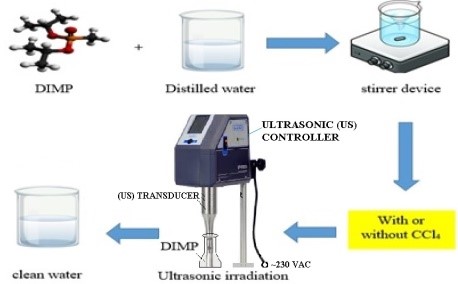
Downloads: 83
Author(s):
Field: Ecological chemistry
Type: Research paper
Issue: 2023 Volume 18, no.2
Pages: 35-44
Pavlo Kuzema, Iryna Laguta, Oksana Stavinskaya, Viktor Anishchenko, Anastasiia Kramar, Natalia Smirnova, Tetiana Fesenko, Roman Ivannikov, Oksana Linnik
Field: Ecological chemistry
Type: Research paper
Issue: 2023 Volume 18, no.2
Pages: 35-44
Full Text (PDF): Download
Abstract (PDF)
Graphical Abstract: The extracts from the leaves of Deschampsia antarctica, Camelina sativa, and Camellia japonica plants, as well as from Camelina sativa and Silybum marianum seedcakes were investigated as potential additives for improvement of biodiesel stability against oxidation. In spite of significant distinctions in the content of various phenolic compounds, all the extracts were found to effectively inhibit DPPH radicals and decelerate transformation of fatty acid esters of biodiesel into organic acids by ~9-26%. Various extracts were shown to have different activity towards the biodiesel from rape and camelina seed oils; this result is consistent with the assumption that there is no universal stabilizer for different types of biodiesel.
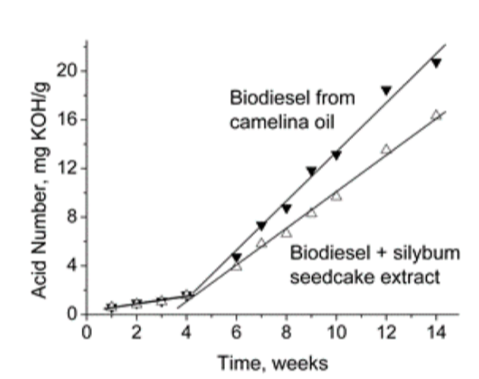
Graphical Abstract: The extracts from the leaves of Deschampsia antarctica, Camelina sativa, and Camellia japonica plants, as well as from Camelina sativa and Silybum marianum seedcakes were investigated as potential additives for improvement of biodiesel stability against oxidation. In spite of significant distinctions in the content of various phenolic compounds, all the extracts were found to effectively inhibit DPPH radicals and decelerate transformation of fatty acid esters of biodiesel into organic acids by ~9-26%. Various extracts were shown to have different activity towards the biodiesel from rape and camelina seed oils; this result is consistent with the assumption that there is no universal stabilizer for different types of biodiesel.

Downloads: 128
Author(s):
Field: Physical chemistry and chemical physics
Type: Research paper
Issue: 2023 Volume 18, no.2
Pages: 87-95
Pedro Silva
Field: Physical chemistry and chemical physics
Type: Research paper
Issue: 2023 Volume 18, no.2
Pages: 87-95
Full Text (PDF): Download
Abstract (PDF)
Graphical Abstract: DFT computations identify the effects that enable the synthesis of geometrically-strained epoxide from deprotonated halohydrins. These computations also explain the preference for the formation of larger cyclic ethers with five-atom rings over six-atom-rings. Increased temperature favors elimination over SN2 only when the reacting moieties are part of separate molecules.
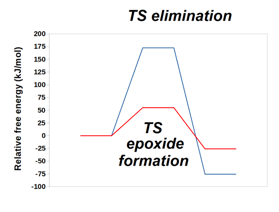
Graphical Abstract: DFT computations identify the effects that enable the synthesis of geometrically-strained epoxide from deprotonated halohydrins. These computations also explain the preference for the formation of larger cyclic ethers with five-atom rings over six-atom-rings. Increased temperature favors elimination over SN2 only when the reacting moieties are part of separate molecules.

Downloads: 116
Author(s):
Field: Physical chemistry and chemical physics
Type: Research paper
Issue: 2023 Volume 18, no.2
Pages: 69-77
Olga Chudinovych
Field: Physical chemistry and chemical physics
Type: Research paper
Issue: 2023 Volume 18, no.2
Pages: 69-77
Full Text (PDF): Download
Abstract (PDF)
Graphical Abstract: The isothermal section of the La2O3–Lu2O3–Er2O3 phase diagram at 1250°C has the characteristic three one-phase fields (A-La2O3, R, C-Lu2O3(Er2O3)) corresponding to solid solutions based on starting components and two two-phase fields (C + R, A + R) between them.
Graphical Abstract: The isothermal section of the La2O3–Lu2O3–Er2O3 phase diagram at 1250°C has the characteristic three one-phase fields (A-La2O3, R, C-Lu2O3(Er2O3)) corresponding to solid solutions based on starting components and two two-phase fields (C + R, A + R) between them.
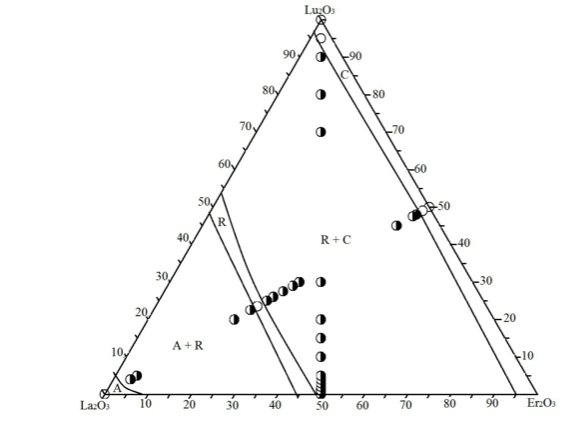
Downloads: 58
Author(s):
Field: Physical chemistry and chemical physics
Type: Invited paper
Issue: 2023 Volume 18, no.2
Pages: 7-14
Isaac Bersuker
Field: Physical chemistry and chemical physics
Type: Invited paper
Issue: 2023 Volume 18, no.2
Pages: 7-14
Full Text (PDF): Download
Abstract (PDF)
Graphical Abstract: This paper discusses the notion of symmetry of polyatomic systems defined as invariance under transformations, and showes that this important property of atomic matter is extremely vulnerable, and may undergo internal breakdown, subject to the presence of electronic degeneracy or pseudodegeneracy. It is shown that electronic degeneracy and its extended form, called pseudodegeneracy, are actually the only source of spontaneous symmetry breaking (SSB) in nature, including all forms of matter, beginning with elementary particles, via nuclei, atoms, molecules, and solids. Theoretically, the vulnerability of the notion of symmetry is due to the fact that, following quantum mechanics, the separation of the motion of electrons and nuclei (and, similarly, the separation of motions of elementary particles) is approximate, and hence the classical notion of polyatomic space configuration is approximate too, with SSB as one of its main violation.
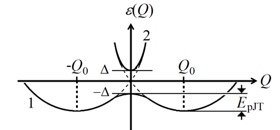
Graphical Abstract: This paper discusses the notion of symmetry of polyatomic systems defined as invariance under transformations, and showes that this important property of atomic matter is extremely vulnerable, and may undergo internal breakdown, subject to the presence of electronic degeneracy or pseudodegeneracy. It is shown that electronic degeneracy and its extended form, called pseudodegeneracy, are actually the only source of spontaneous symmetry breaking (SSB) in nature, including all forms of matter, beginning with elementary particles, via nuclei, atoms, molecules, and solids. Theoretically, the vulnerability of the notion of symmetry is due to the fact that, following quantum mechanics, the separation of the motion of electrons and nuclei (and, similarly, the separation of motions of elementary particles) is approximate, and hence the classical notion of polyatomic space configuration is approximate too, with SSB as one of its main violation.

Downloads: 73
Author(s):
Field: Inorganic and coordination chemistry
Type: Research paper
Issue: 2023 Volume 18, no.2
Pages: 53-60
Natalia Talmaci, Diana Dragancea, Elena Gorincioi, Pavlina Bourosh, Victor Kravtsov
Field: Inorganic and coordination chemistry
Type: Research paper
Issue: 2023 Volume 18, no.2
Pages: 53-60
Full Text (PDF): Download
Abstract (PDF)
Supplementary Material (PDF)
Graphical Abstract: The crystal structure of 1,5-bis(2-hydroxy-3-methoxybenzylidene) carbonohydrazide was determined by X-ray single crystal diffraction study. In solid-state the molecule adopts the anti keto conformation, while NMR studies proved evidence on the presence of its syn tautomer in DMSO solution.
Supplementary Material (PDF)
Graphical Abstract: The crystal structure of 1,5-bis(2-hydroxy-3-methoxybenzylidene) carbonohydrazide was determined by X-ray single crystal diffraction study. In solid-state the molecule adopts the anti keto conformation, while NMR studies proved evidence on the presence of its syn tautomer in DMSO solution.

Downloads: 115
